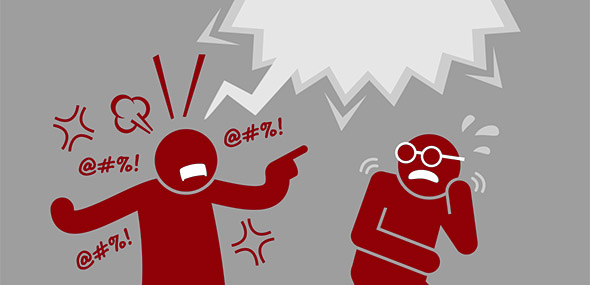ELECTION INSIGHTS 2018
Research-based perspectives from MIT
Justin Khoo | On Democracy and Civic Discourse
Associate Professor of Philosophy

Photo by Allegra Boverman
"We must somehow figure out how to get along despite our disagreements. In particular, we may wonder whether, and to what extent, we should tolerate views we disagree with. Is discursive intolerance, in some cases, required to promote a well-functioning marketplace of ideas?"
ELECTION INSIGHTS 2018
Research-based perspectives from MIT
QUESTION
In recent years, the language of political discourse has become increasingly heated and partisan. Notably, hate speech — including the use of “coded language” to facilitate the public expression of bigoted ideas — appears to be on the rise. In your ideal scenario, what kind of civic discourse would a healthy democracy exhibit? As an expert in the philosophy of language, how can the tools of philosophy be used to understand the current tenor of discourse in American political life? And, what policies, actions, or educational experiences would you recommend to improve our national political conversation and facilitate a more fruitful exchange of ideas?
COMMENTARY
Elections are helpful reminders (as if we needed any) that we do not all agree. Yet, we must somehow figure out how to get along despite our disagreements. In particular, we may wonder whether, and to what extent, we should tolerate views we disagree with.
One reason in favor of (near) universal tolerance comes from John Stuart Mill, who wrote that humans are “capable of rectifying [their] mistakes by discussion and experience. Not by experience alone. There must be discussion to show how experience is to be interpreted ...Very few facts are able to tell their own story, without comments to bring out their meaning” (Mill, On Liberty, 19). Given our fallibility, Mill thought that a well-functioning discursive marketplace of ideas — that is, a public forum where a diversity of views are evaluated on the basis of reason and evidence — was our best chance for knowledge and flourishing.
Mill concluded that we should tolerate disagreement, rather than shut down dissenting views, since doing so would give rise to such a marketplace of ideas. This classic argument for tolerance is echoed in Cass Sunstein’s work on informational cascades (in Why Societies Need Dissent) and is implicitly endorsed by Greg Lukianoff and Jonathan Haidt in their new book The Coddling of the American Mind.
Limits to tolerance of speech?
Against these authors, I think that tolerance is not always the best way to secure a well-functioning discursive market. Rather, in some cases, a well-functioning discursive market may require us to respond to certain views with “discursive intolerance” — behavior that aims to impede the spread of these views without rationally engaging with them, for instance, by protesting, shaming, no-platforming, and voicing counter-narratives.
To Mill, this proposal might sound ludicrous. After all, how could non-rational intolerance promote better rational discourse? I'll try to illustrate how with an abstract example.
Suppose there is a widely endorsed view, call it X, which states that members of certain groups (the X-targeted) are inferior, unknowledgeable, untrustworthy, or biased on certain issues. Suppose further that belief in X is so entrenched that rational arguments against X will fail for reasons having nothing to do with the epistemic merits of X itself. In such a case, the prevalence of X-beliefs in the community threatens its discursive marketplace: the voices of the X-targeted will be effectively silenced — their testimony and arguments will be marginalized, and their views will not be evaluated on their merits.
In this case, given the aim of securing a well-functioning marketplace of ideas, we have reason to be discursively intolerant toward X and X-believers. For instance, one might aim to create practical incentives not to advocate X by protesting or shaming X-belief (as in the nonviolent protests and boycotts implemented throughout the civil rights movement).
Or one might try to undermine X-belief by introducing counter-narratives (e.g., advocating for greater diversity among leading roles in mainstream movies so as to change the representation of X-targeted groups in mass media) or by no-platforming X-speakers (that is, attempting to block them from speaking at certain forums, like university campuses). If successful, such intolerance would create space for the voices of the X-targeted to (re)gain epistemic footing in the marketplace, allowing their views and arguments to be evaluated on their merits.

"Given the goal of securing a well-functioning discursive marketplace, the decision of how to respond to a view you disagree with should depend on how harmful you think its effects are on the market, how entrenched the view is, and your beliefs about whether intolerance would help mitigate some of those effects."
Dangers of discursive intolerance
Thus, discursive intolerance may, in some cases, be required to promote a well-functioning marketplace of ideas. But, it does not follow that discursive intolerance is the correct response in every case of disagreement. Indeed, there are serious dangers in responding to disagreement with discursive intolerance. Intolerance may beget intolerance, and could lead to the dissolution of any discursive engagement within the community. Less catastrophically, intolerance may undermine the ability of X-believers to engage discursively on topics unrelated to X.
Assessing situations
These worries about discursive intolerance must be weighed against the reasons that favor it. Since we often do not know whether we are in a situation as described above with X-belief, it usually won’t be obvious whether we ought to be discursively intolerant in any particular case.
Given the goal of securing a well-functioning discursive marketplace, the decision of how to respond to a view you disagree with should depend on how harmful you think its effects are on the market, how entrenched the view is, your beliefs about whether intolerance would help mitigate some of those effects, and your view about how likely it is that intolerance would further destabilize the market.
Answers to these questions will be controversial, and there is no reason to expect everyone will agree about the correct response in any particular case. Unfortunately, there is no neutral position from which to assess such disagreements. Nonetheless, we have seen that it need not be the case that advocates of discursive intolerance are enemies of rational discussion — indeed, their actions may in fact be in the service of promoting such discussion.
Suggested Links
About
News, Interview, Further Reading
News story: Applying philosophy for a better democracy
Interview with Justin Khoo at 3am magazine
Essays recommended for further reading
How to Vote in Every State.
See video with info for your state — and vote!
